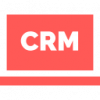Out of Disorder into Clarity: Picking the Appropriate Customer Relationship Management Solution

In the current rapid business landscape, the right resources can make all the difference from chaos versus transparency. Customer Relationship Management, also known as CRM tools, is emerged as an indispensable asset for companies striving to enhance their customer interactions and streamline their processes. Amidst a wide array of options present in the industry, choosing the right CRM system that aligns with your company's specific needs might feel daunting.
Many companies often themselves overwhelmed by the features, cost structures, and varying degrees of complexity involved present in different CRM systems. Nonetheless, taking a strategic approach to this selection process might transform your company's customer relationship efforts and eventually drive growth. By comprehending your particular needs and evaluating possible solutions carefully, you could maneuver throughout the choices and identify a CRM system that brings clarity and effectiveness to your organizational operations.
Grasping Customer Relationship Management Applications Categories
CRM applications is vital for overseeing client relationships and enhancing organizational processes. There are numerous types of CRM systems available, every one designed to satisfy distinct needs. The leading types consist of transactional CRM, data-driven CRM, and team-oriented CRM. Understanding these types can help you identify which system aligns best with your business objectives.
Operational CRM focuses on the automation of selling, advertising, and client support operations. This form of software aims to enhance process flows, coordinate customer interactions, and boost general productivity. Zoho CRM feature client management, lead monitoring, and sales funnel oversight. Businesses looking to enhance their daily operations and cultivate customer interactions will gain from operational CRM solutions.

Data-driven CRM, alternatively, highlights the analysis of data to gain understanding into customer behavior and preferences. This form of application helps organizations grasp trends and make informed choices. By examining client data, organizations can develop targeted marketing strategies and enhance offering services. If your business prioritizes informed choices and aims to enhance customer understanding, analytical CRM is the ideal solution.
Key Features to Consider
As you are selecting a CRM software, the initial feature to evaluate is ease of use. A intuitive interface can significantly streamline adoption among your team members. Make sure that the software provides easy navigation and has features that simplify daily tasks. Simplicity in design often leads to greater utilization and can enhance productivity over time.
Next, consider customizability. Your business is distinct, and your CRM should reflect that. Look for solutions that offer modifiable configurations to match your workflows. Custom fields, dashboards, and reporting options allow you to tailor the system to meet particular needs, ensuring you capture the right data and extract valuable insights that align with your business objectives.
One more crucial feature is the ability to integrate. The best CRM software should seamlessly connect with other tools your business uses, such as email marketing platforms, project management software, and accounting systems. This interconnectedness helps create a unified ecosystem, preventing data silos and promoting teamwork across departments, which is crucial for delivering an exceptional customer experience.
Assessing Customer Relationship Management Solutions
When assessing CRM systems, start by evaluating your business needs and objectives. Take into account factors such as the scale of the team, the complexity of sales processes, and the particular functionalities that are crucial to your operations. Collaborating with stakeholders across your organization can provide important insights into what features will enhance efficiency and user experience. This collaborative approach helps ensure that the selected Customer Relationship Management fits with the overall business strategy.
Next, explore the various CRM software options available on the market. Search for systems that offer the ability to scale and adaptability, allowing you to adjust as the business expands. Take the time to review case examples or testimonials from customers to understand how various options have worked in real-world situations. Assess the user interface and overall usability, as a solution that is difficult to navigate may hinder adoption among team members.
Finally, think about the overall cost of ownership related to each CRM system. In addition to the initial subscription fees, include additional costs such as training, support, and possible integration with current systems. Select a Customer Relationship Management that provides a compromise between cost-effectiveness and features, ensuring you derive maximum benefit from your investment. Testing out free trials or demos can also give a clearer idea of how the different options fits the business before finalizing a decision.
